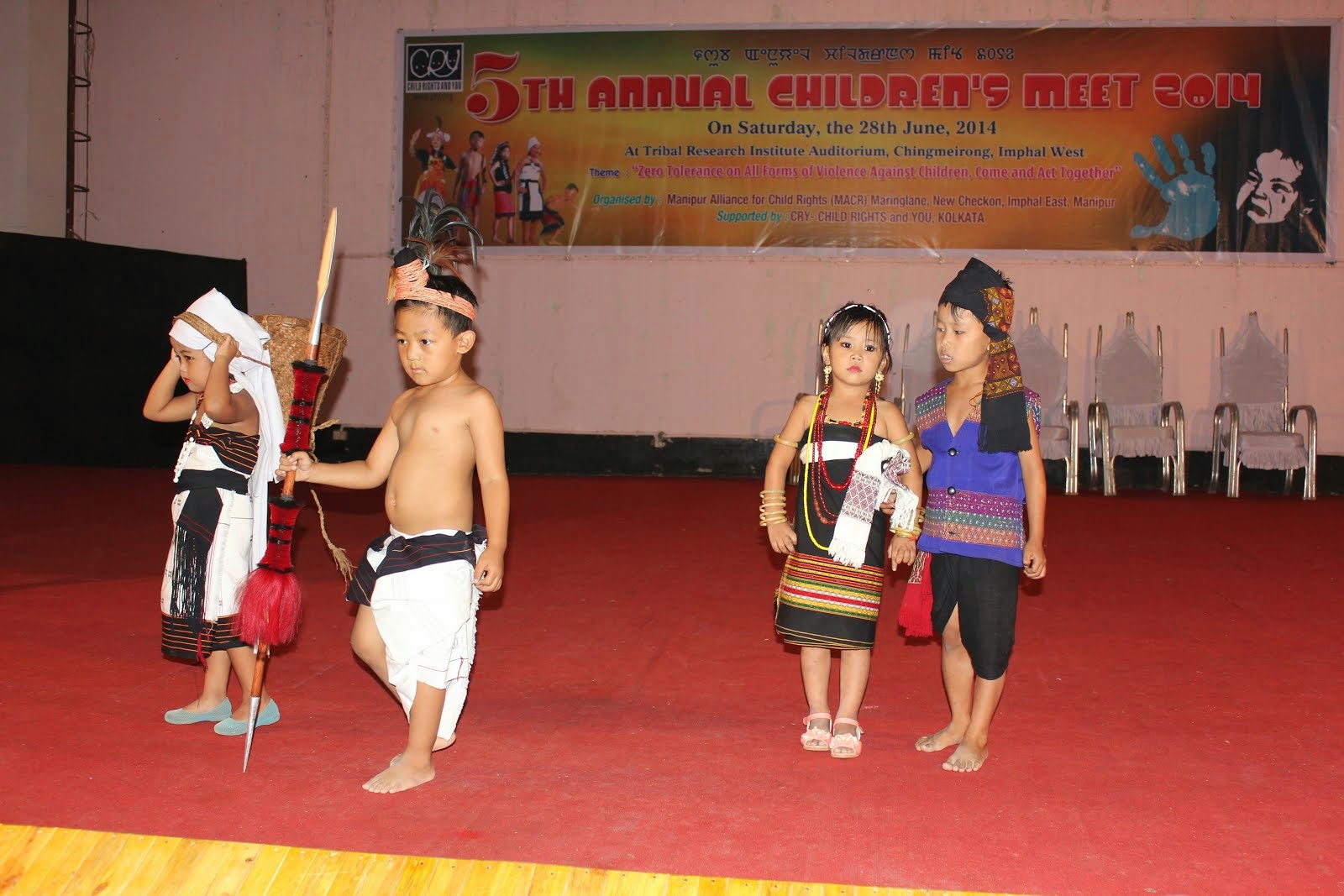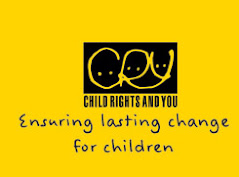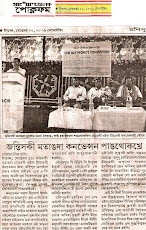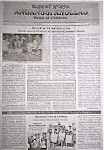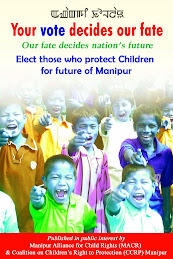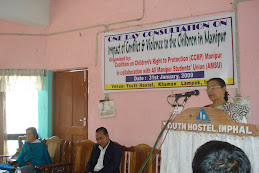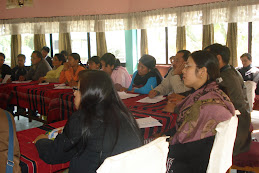http://www.thesangaiexpress.com/tseitm-23314-rte-act-2009-versus-unaided-minority-schools/
By K Pradipkumar
Prior to the introduction of Article 21-A to the Constitution of India by the 86th amendment in 2002, the right to education was implicit in Article 21 read with Article 45 which is a Directive Principles of State Policy. Unamended Article 45 reads as “ Article 45: Provision for free and compulsory education for children- The State shall endeavour to provide, within a period of ten years from the commencement of this Constitution, for free and compulsory education for all children until they complete the age of fourteen years.” By the introduction of Article 21-A, it become a fundamental right and the same reads as “21-A: The State shall provide free and compulsory education to all children of the age of six to fourteen years in such manner as the State may, by law, determine.” The manner to determine and regulate for providing free and compulsory education is laid down in the newly enacted “The Right of Children to Free and Compulsory Education Act, 2009 [in short, RTE Act, 2009]”.
The object of RTE Act is to provide for free and compulsory education to all children of the age of six to fourteen years. The Act, inter-alia, mandates the right of the children from 6-14 years to free and compulsory education and responsibility and function of the State and school. Section 2(n) defines “school” means any recognized school imparting elementary education and includes- (i) a school established, owned or controlled by the appropriate Government or a local authority; (ii) an aided school receiving aid or grants to meet whole or part of its expenses from the appropriate Government or the local authority; (iii) a school belonging to specified category; and (iv) an unaided school not receiving any kind of aid or grants to meet its expenses from the appropriate Government or the local authority. Section 2(p) explains “specified category” in relation to a school, means a school known as Kendriya Vidyalaya, Navodaya Vidyalaya, Sainik School or any other school having a distinct character which may be specified, by notification, by the appropriate Government. Section 2(f) defines “elementary education” means the education from first class to eight class and as per Section 2(c), “child” means a male or female of the age of six to fourteen years. Section 2(b) defines “capitation fee” means any kind of donation or contribution or payment other than the fee notified by the school and Section 2(o) explains “screening procedure” means the method of selection for admission of a child, in preference over another, other than a random method.
Section 3 entitles every child from 6 to 14 years a right to free and compulsory education in neighbourhood school till completion of elementary school. Chapter III [Sections 6-11] mandates the appropriate Government to establish schools for providing free and compulsory education to every child.
Chapter IV [Sections 12-28] prescribes the responsibilities of schools and teachers. Section 12(1)(c) mandates that a specified category school and an unaided school shall also admit in class I, to the extent of 25% of the strength of that class, children belonging to weaker section and disadvantaged group in neighbourhood and provide free and compulsory elementary education till its completion. Section 13 specifically bans collection of capitation fee and conduct of any screening test to child or parent or guardian. Section 18 mandates recognition of school from appropriate authority and Section 19 prescribes the norms and standards for school as specified in the Schedule. Under Section 23, the minimum qualifications for appointment of teacher is as laid down by the academic authority. Section 29 authorizes the appropriate Government to prescribe the curriculum and the evaluation procedure for elementary education.
From a bare perusal of the various provisions of the RTE Act 2009, it is clear that the Act does not treat “a minority institution” as a separate and distinct category of school as Section 2(n) does not define a minority school as a separate category. Such school is included within sub clauses (ii) and (iv) of Section 2(n). Thus a minority school will fall within sub clause (ii) if it is an aided and within sub clause (iv) if the same is an unaided school. The unamended RTE Act does not exempt any school from its purview.
However, after the judgment of the Supreme Court of India in the case of Society for Unaided Private Schools of Rajasthan versus Union of India: (2012) 6 SCC 1 [dated 12-4-2012], for the first time, it is held in Para 65 that RTE Act is not applicable to unaided minority schools. Para 65 reads as “However, the said 2009 Act, and in particular Sections 12(1)(c) and 18(3) infringes the fundamental freedom guaranteed to unaided minority schools under Article 30(1) and consequently, applying the R.M.D. Chamarbaugwalla v. Union of India principle of severability, the said 2009 Act shall not apply to such schools.”
From a plain reading of Para 65, it is clear that the non-applicability RTE Act to minority school is only the provisions of Section 12(1)(c) which mandates reservation of 25% seat for disadvantage and weaker section and Section 18(3) which authorizes the appropriate Government for withdrawal of recognition and not to the whole Act.
In order to understand the meaning of minority school, first of all we have to look for the meaning of “minority” within the Constitution and rights conferred on a minority school. The Constitution does not define as to what is a minority. However, the UN Sub-Commission on Prevention of Discrimination and Protection of Minorities has defined “minority” (by an inclusive definition), as- (i) The term ‘minority’ includes only those non-document groups in a population which possess and wish to preserve stable ethnic, religious or linguistic traditions or characteristics markedly different from those of the rest of the population; (ii) such minorities should properly include a number of persons sufficient by themselves to preserve such traditions or characteristics; and (iii) such minorities must be loyal to the State of which they are nationals. Article 27 of the International Covenant on Civil and Political Rights does not define the expression but gives the following rights to them- In those States in which ethnic, religious or linguistic minorities exist, persons belonging to minorities shall not be denied the right, in community with the other members of their groups, to enjoy their own culture, to profess and practise their own religious or to use their own language. In the TMA Pai Foundation vs. State of Karnataka: (2002) 8 SCC 481, a Constitution Bench of the Apex Court has held that the word ‘minority’ is not defined in the Constitution but it literally means ‘a non-dominant’ group. It is a relative term and is referred to, to represent the smaller of two numbers, sections or groups called ‘majority’. In that case there may be political minority, religious minority, linguistic minority, etc.
The Indian Constitution also safeguards the right of the religious and linguistic minorities through Articles 29 and 30, which read as under.
Article 29: Protection of Interest of Minorities- (1) Any section of the citizens residing in the territory of India or any part thereof having a distinct language, script or culture of its own shall have the right to conserve the same. (2) No citizen shall be denied admission into any educational institution maintained by the State or receiving aid out of State funds on grounds only of religion, race, caste, language or any of them.
Article 30: Right of Minority to Establish and Administer Educational Institutions- (1) All minorities, whether based on religion or language, shall have the right to establish and administer educational institutions of their choice. (1A) In making any law providing for the compulsory acquisition of any property of an educational institution established and administered by a minority, referred to in clause (1), the State shall ensure that the amount fixed by or determined under such law for the acquisition of such property is such as would not restrict or abrogate the right guaranteed under that clause. (2) The State shall not, in granting aid to educational institutions, discriminate against any educational institution on the ground that it is under the management of a minority, whether based on religion or language.
Article 30 is confined to religious and linguistic minority and confers two rights- (i) right to establish an institution of their choice, and (ii) right to administer it without hindrance from outside. The right under Article 30(1) is subject to the regulatory power of the State and the same is not a charter for maladministration. Legislation for social welfare and similar regulatory measure do not constitute an infringement of Article 30(1). So long as the minority is not deprived of the actual management of the institution, a law regulating certain matters concerning industrial relation, academic matters and the like does not infringe Article 30(1) [See Virendra Nath vs. Delhi (1990) 2 SCC 307, Kerala Education Bill- AIR 1958 SC 956]. In Sidhrajbhai vs. State of Gujarat- AIR 1963 SC 540, it held that the regulation imposed should be reasonable, be regulative of educational character of the institution and must be conducive to making the institution an effective vehicle of education for the minority community or other persons who resort to it. It must not annihilate the institution.
In the Society for Unaided Private Schools of Rajasthan- (2012) 6 SCC 1 @ Para 56, 57 and 58, it is held as below:
“56. Article 29(1) confers on any section of the citizens a right to conserve its own language, script or culture by and through educational institutions and makes it obvious that a minority could conserve its language, script or culture and, therefore, the right to establish institutions of its choice is a necessary concomitant to the right to conserve its distinctive language, script or culture and that right is conferred on all minorities by Article 30(1). That right, however, is subject to the right conferred by Article 29(2).
57. Article 30(1) gives the minorities two rights: (a) to establish, and (b) to administer educational institutions of their choice. The real import of Article 29(2) and Article 30(1) is that they contemplate a minority institution with a sprinkle of outsiders admitted into it. By admitting a non-member into it the minority institution does not shed its character and cease to be a minority institution. The key to Article 30(1) lies in the words “of their choice”.
(Published by Manipur Alliance for Child Rights (MACR) in public interest. The writer is the Convenor of MACR) -To be contd

